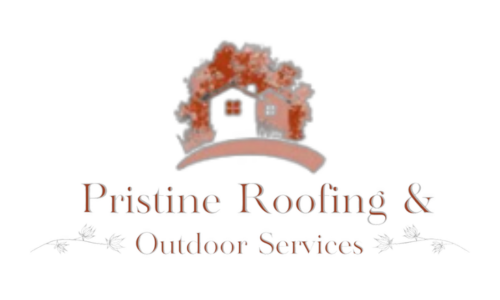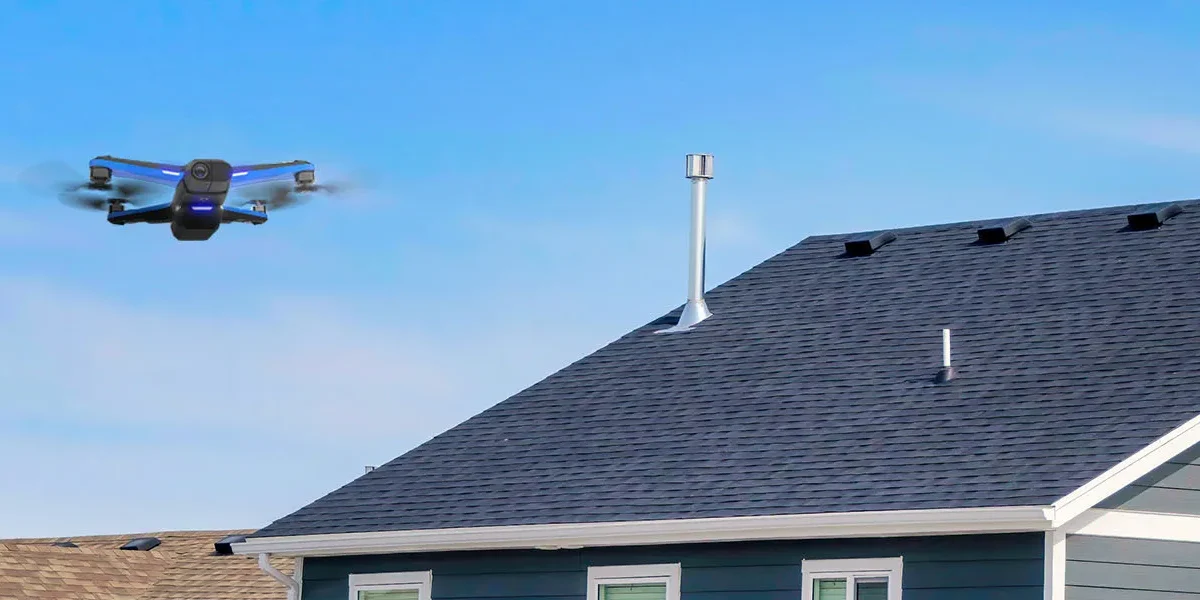Drone roof inspections have revolutionized the way property owners and managers assess and maintain their rooftops. Utilizing unmanned aerial vehicles (UAVs) or drones for roof inspections not only enhances safety but can also reduce costs compared to traditional methods. This guide delves deep into the factors that influence drone roof inspections cost and examines why this modern approach is becoming increasingly popular in the building maintenance sector.
Understanding Drone Technology for Roof Inspections
Types of Drones Used for Inspections
Various drones are employed for roof inspections, ranging from multi-rotor drones, which provide stability and precision, to fixed-wing drones, which are best suited for inspecting large areas quickly. The choice depends on the specific needs of the inspection.
Features Important for Roof Inspections
Important features for drone roof inspections include high-resolution cameras for detailed images, thermal imaging to detect moisture and insulation issues, and GPS precision for exact mapping of the roof’s condition.
Advancements in Drone Technology
Advancements in drone technology continue to enhance their effectiveness in roof inspections. Improvements in battery life, autonomous flight capabilities, and integrated software systems have made drones not only more efficient but also more accessible in terms of cost.
Factors Influencing Drone Roof Inspection Costs
Type of Drone
The type of drone used can significantly affect the drone roof inspection cost. High-end drones equipped with advanced imaging and sensing technology are typically more expensive to operate than basic models.
Complexity of the Roof Structure
Complex roof structures with multiple levels, steep slopes, or difficult-to-access areas may increase the cost due to the higher level of skill required to navigate and the increased time spent on the inspection.
Area and Accessibility of the Roof
Larger roofs or those that are difficult to access can increase drone roof inspections cost due to the increased time and potentially more complex equipment needed to complete the inspection effectively.
Cost Comparison: Drone vs. Traditional Roof Inspections
Time Efficiency and Cost Savings
Drone inspections are generally quicker than traditional methods, reducing labor costs and downtime for businesses. This time efficiency translates directly into cost savings for property owners.
Safety and Risk Factors
Traditional roof inspections often involve risky climbs and can lead to accidents. Drones eliminate the need for physical presence on the roof, significantly reducing the risk and liability costs.
Accuracy and Detail of Inspection Results
Drones provide detailed images and data that can be more accurate than the human eye, especially in hard-to-reach areas. This accuracy is crucial for preventing future costly repairs, adding value despite the initial drone roof inspections cost.
Average Costs of Drone Roof Inspections
Basic Inspection Costs
The cost for a basic drone roof inspection typically ranges from $150 to $400, depending on the property size and location. This includes visual inspections using standard camera equipment.
Detailed Inspection and Additional Features Costs
For more detailed inspections that include thermal imaging or other advanced features, costs can rise to between $500 and $1,000 or more.
Regional Price Variations
Drone roof inspections cost can vary widely based on regional factors such as local regulations, the concentration of service providers, and specific site challenges.
Breakdown of Drone Inspection Costs
Equipment and Technology Costs
The technology and equipment used in drone inspections represent a significant portion of the cost. Advanced drones with superior imaging capabilities can be more expensive to purchase and maintain.
Labor Costs and Pilot Expertise
The expertise of the drone pilot and the time required to complete the inspection also contribute to the overall cost. Certified pilots with extensive experience may charge more for their services.
Insurance and Liability Considerations
Operating drones for commercial purposes requires specific types of insurance, which can add to the drone roof inspections cost. However, this insurance is essential for protecting both the service provider and the client.
Additional Costs to Consider
Permitting and Legal Compliance Costs
Depending on the location, there may be permits or other legal requirements that add to the cost of conducting drone roof inspections.
Emergency or Rush Inspection Fees
In situations where an inspection is required urgently, additional rush fees may apply. This is often the case following severe weather events or when immediate real estate transactions are pending.
Data Processing and Report Generation Costs
After the drone captures the data, there is often a need to process this data into usable reports. This stage can involve additional costs, particularly if advanced analytics or detailed reporting is required.
Benefits of Drone Inspections for Different Roof Types
Flat Roofs and Large Commercial Properties
Drones are particularly effective for inspecting large commercial properties with flat roofs, as they can quickly and safely assess large areas and identify issues like ponding water or compromised roofing material.
Residential Properties
For residential properties, drones offer a quick and non-invasive way to inspect roofs without the risk of damaging tiles or other roofing materials.
Historic Buildings and Sensitive Structures
Drones allow for thorough inspections of historic and sensitive structures without the need for physical contact, which can prevent potential damage to these valuable properties.
How to Choose a Drone Roof Inspection Service
Credentials and Certifications
Always look for a service provider that holds the necessary credentials and certifications. This ensures they are compliant with industry standards and regulations, which is crucial for safety and reliability.
Experience with Similar Roof Types
Choose a service provider with experience in inspecting roofs similar to yours. Their experience will ensure they know the potential pitfalls and special considerations for your roof type.
Reviews and Recommendations
Check reviews and seek recommendations before choosing a service. Positive feedback from previous clients can provide reassurance about the quality and reliability of the service.
Preparing for a Drone Roof Inspection
What Homeowners and Property Managers Should Do
Clear any obstacles that might interfere with the drone’s flight path and ensure the roof is as accessible as possible. Inform neighbors if the drone might enter their airspace to avoid privacy concerns.
What to Expect During the Inspection
Expect the inspection to last anywhere from 30 minutes to several hours, depending on the roof size and complexity. The pilot will control the drone to capture high-definition photos and videos of the roof.
Post-Inspection Processes
After the inspection, the service provider will analyze the data and deliver a comprehensive report detailing the condition of the roof and any recommended repairs.
ROI and Long-Term Benefits of Drone Roof Inspections
Preventative Maintenance Savings
Regular drone inspections can identify minor issues before they become major problems, significantly reducing long-term maintenance costs.
Enhanced Data for Better Decision-Making
Detailed reports from drone inspections provide valuable data that can help property owners make informed decisions about roof maintenance and repairs, potentially extending the life of the roof.
Impact on Insurance and Warranty Claims
Accurate, detailed inspections can support insurance claims and warranty issues, providing documented evidence of the roof’s condition when needed.
Common Misconceptions About Drone Roof Inspections
Misconception vs. Reality: Cost
While some may believe drone inspections are expensive, they are often more cost effective than traditional methods when considering the savings on labor, time, and future repairs.
Misconception vs. Reality: Effectiveness
Some skeptics doubt the effectiveness of drones for detailed inspections, but advanced imaging technologies allow drones to accurately assess even small defects.
Misconception vs. Reality: Legality and Privacy Concerns
Concerns about legality and privacy are common, but professional drone operators are well-versed in complying with local laws and regulations, ensuring inspections are conducted legally and respectfully.
FAQs about Drone Roof Inspections Cost
1. How much does a drone roof inspection typically cost?
The cost of a drone roof inspection can vary widely, typically ranging from $150 to $1,000, depending on factors such as roof size, complexity, the technology used, and regional variations.
2. What factors affect the cost of a drone roof inspection?
Key factors influencing cost include the type of drone, the complexity of the roof structure, the accessibility of the roof, the level of detail required in the inspection, and the geographic location.
3. How do drone roof inspections compare to traditional methods in terms of cost?
Drone inspections can often be more cost-effective than traditional methods due to reduced labor costs, lower risk of accidents, and faster completion times.
4. What are the benefits of using a drone for roof inspections?
Benefits include enhanced safety by avoiding the need to physically climb roofs, higher efficiency with quick data collection, more detailed and accurate data capture with advanced imaging technologies, and the ability to access hard-to-reach areas.
5. How long does a drone roof inspection take?
A typical drone roof inspection can take anywhere from 30 minutes to several hours, depending on the roof’s size and complexity.
6. Is a drone roof inspection safer than traditional methods?
Yes, drone inspections are generally safer as they eliminate the need for physical presence on the roof, significantly reducing the risk of falls and injuries.
7. What types of drones are used for roof inspections?
Multi-rotor drones are commonly used for roof inspections due to their stability and ability to hover, which facilitates detailed and stationary captures. Fixed-wing drones may be used for larger areas but are less common.
8. Can drones inspect all types of roofs?
Yes, drones are capable of inspecting various types of roofs, including residential, commercial, and special structures like historic buildings, although the specific approach may vary depending on the roof type and material.
9. What should I prepare before a drone roof inspection?
Ensure that the roof area is clear of debris and personal items, notify neighbors about the upcoming inspection to address any privacy concerns, and secure any loose objects that might interfere with drone operation.
10. Are there any legal considerations with drone roof inspections?
Yes, drone operators must comply with local aviation regulations, which may include flight altitude restrictions, privacy laws, and specific drone certification requirements. Always ensure that your drone operator has the necessary permits and follows local regulations.
11. What happens after the drone inspection?
After the inspection, the drone operator will process the data and provide a detailed report that includes high-resolution images, videos, and sometimes thermal imaging results, highlighting any issues or potential concerns.
12. How can I find a reputable drone roof inspection service?
Look for services with certified and experienced drone operators, check reviews and testimonials from previous clients, and ensure they have a clear pricing structure and comprehensive service offerings.
Conclusion
The drone roof inspections cost can vary based on several factors, but the benefits they offer in terms of safety, efficiency, and detailed data make them a worthwhile investment for any property owner. By choosing the right service provider and understanding what to expect, you can leverage this modern technology to maintain your roof’s integrity and protect your property for years to come.







